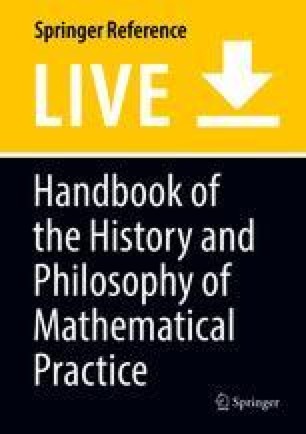Line Edslev Andersen publishes "The Social Epistemology of Mathematical Proof"
In: Handbook of the History and Philosophy of Mathematical Practice, edited by Bharath Sriraman (Springer, 2021).

Abstract
If we want to understand why mathematical knowledge is extraordinarily reliable, we need to consider both the nature of mathematical arguments and mathematical practice as a social practice. Mathematical knowledge is extraordinarily reliable because arguments in mathematics take the form of deductive mathematical proofs. Deductive mathematical proofs are surveyable in the sense that they can be checked step by step by different experts, and a purported proof is only accepted as a proof by the mathematical community once a number of experts have checked the proof. Hence, the reliability of the body of mathematical knowledge is in part obtained through the surveyability of proofs and the social process of proof validation. This chapter reviews work relating to (1) the norm in the mathematical community of only counting as argument deductive mathematical proof, and (2) the norm of only counting as deductive mathematical proof an argument that has been confirmed to be a deductive mathematical proof by a number of experts. The chapter also presents cases of unusual mathematical proofs or arguments that challenge these norms.
Keywords: Social epistemology of mathematical proof, Norms in mathematics, Surveyability of proofs, Proof validation, Ghost theorems, Complex proofs
